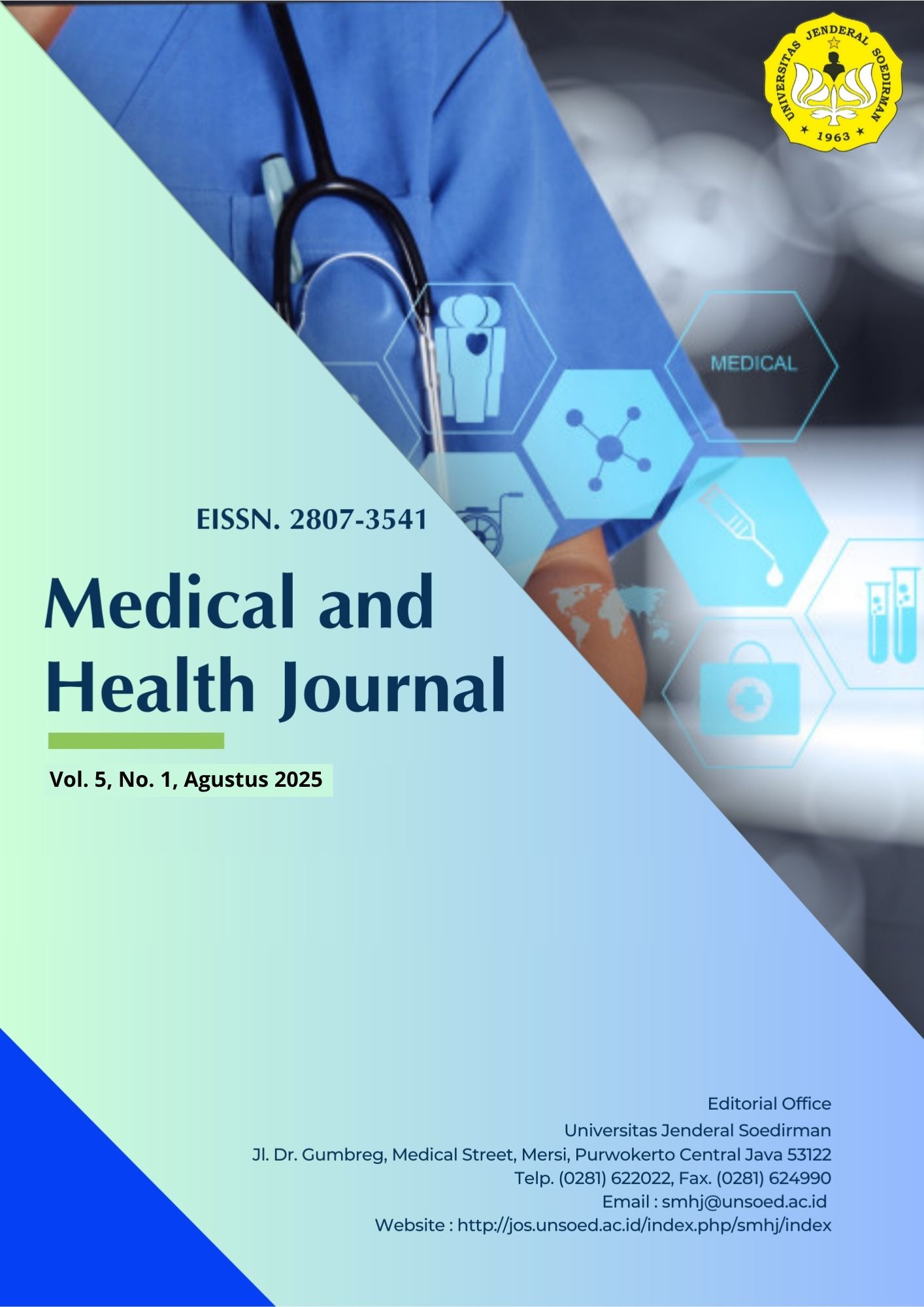Biopotency of Ethanol Extract of Rasamala (Altingia excelsa) Leaves as a Botanical Insecticide Against Aedes aegypti Mosquitoes
Abstract
Aedes aegypti is the primary vector of dengue hemorrhagic fever (DHF), which remains a major public health concern in Indonesia. Continuous use of synthetic insecticides has led to the emergence of resistance and
adverse environmental impacts. This study aimed to evaluate the biopotential of ethanol extract from Altingia excelsa (rasamala) leaves as a botanical insecticide against Aedes aegypti mosquitoes. The experiment was conducted by exposing female Aedes aegypti mosquitoes aged 3–5 days to vapor from rasamala leaf extract at threeconcentrations (25%, 50%, and 75%) using an electric liquid vaporizer device. Mortality percentages were recorded at 8, 16, and 24 hours and subsequently analyzed using statistical and probit methods. The results demonstrated that rasamala leaf extract possesses insecticidal activity. However, the LC₅₀ value of 182% indicated low efficacy, as it exceeded the highest concentration tested. Moreover, the LT₅₀ value could not be reliably determined within the observed time frame. These findings suggest that while Altingia excelsa extract exhibits insecticidal potential, further optimization of its formulation or an increase in concentration is required to achieve greater effectiveness.






